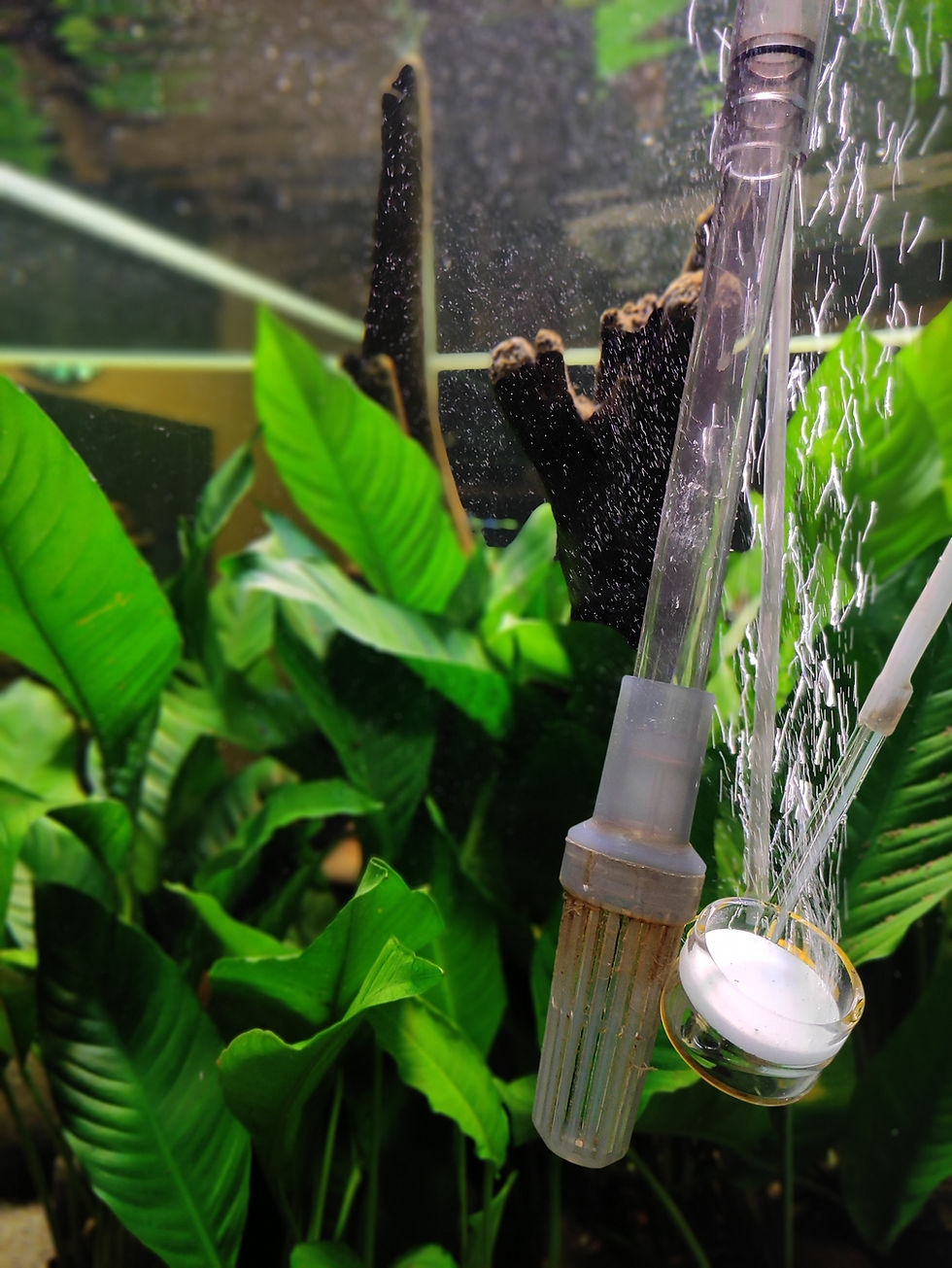Aquarium hobbyists often wonder, "Is oxygen necessary for an aquarium?" The answer is a resounding yes. Oxygen is crucial for the survival and well-being of fish, plants, and beneficial bacteria in your aquarium. Adequate oxygen levels ensure a healthy aquatic environment, preventing fish from suffocating and keeping water parameters balanced. In this article, we'll explore the importance of oxygen in aquariums and share useful tips on how to maintain optimal levels.
What Role Does Oxygen Play in an Aquarium?
Oxygen is vital for aquatic life, just like it is for terrestrial creatures. Fish absorb oxygen from the water through their gills, allowing them to breathe. Additionally, oxygen supports beneficial bacteria that break down harmful waste in the tank. Without sufficient oxygen, fish become stressed, and waste decomposition slows down, leading to potential toxic buildups like ammonia and nitrites.
How Can You Increase Oxy gen Levels in Your Aquarium?
If your aquarium lacks oxygen, there are a few ways to boost it effectively:
Add Air Stones or Air Pumps: Air stones, connected to air pumps, create bubbles that increase surface agitation, promoting gas exchange.
Increase Surface Movement: Use filters that create surface ripples or waves, enhancing oxygen absorption from the air.
Install Powerheads or Wave Makers: These devices create water movement, promoting oxygenation in larger tanks.
Introduce Live Plants: Plants release oxygen during photosynthesis, improving water quality and oxygen levels.
How to Identify Low Oxygen Levels in an Aquarium?
Fish and other tank inhabitants exhibit specific behaviors when oxygen is low:
Gasping for Air at the Surface: Fish may swim near the surface, trying to access more oxygen.
Lethargic Behavior: Fish may become sluggish and inactive.
Rapid Gill Movement: Increased breathing rate is a sign of oxygen deficiency.
Can an Overcrowded Aquarium Affect Oxygen Levels?
Yes, overcrowding can significantly reduce oxygen availability. More fish means increased oxygen demand and waste production, which can lead to depleted oxygen levels. To avoid this, follow the rule of thumb: one inch of fish per gallon of water, depending on species and tank conditions.
Do Aquarium Plants Provide Enough Oxygen?
Aquarium plants release oxygen during the day but absorb it at night. Relying solely on plants for oxygen can be risky, especially in densely stocked tanks. It's advisable to have additional aeration methods, like filters and air stones, to ensure consistent oxygen levels.
What Are the Best Ways to Maintain Oxygen Levels?
Here are some effective strategies:
Regular Water Changes: Fresh water brings in oxygen and helps reduce waste.
Monitor Water Temperature: Warmer water holds less oxygen, so keep temperatures stable.
Clean the Tank Regularly: Organic waste consumes oxygen, so regular cleaning helps maintain a healthy environment.
Why Is Oxygen Necessary for an Aquarium During Power Outages?
During power outages, the filtration and aeration systems stop working, drastically reducing oxygen levels. To prepare for such situations:
Use Battery-Powered Air Pumps: These pumps can temporarily aerate the tank.
Manual Water Stirring: Gently stir the water with a clean container to create surface movement.
Reduce Feeding: Less feeding means less waste, reducing the oxygen demand.
Final Thoughts
Oxygen is a lifeline for aquariums, ensuring the health of fish and maintaining a balanced ecosystem. Regular monitoring, adequate aeration, and proper maintenance are key to keeping oxygen levels stable. Remember, when it comes to aquariums, oxygen is as essential underwater as it is above it.
For more details visit our YouTube channel: Blessings Aquarium

Comments